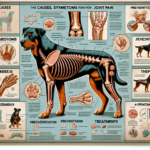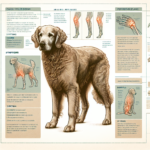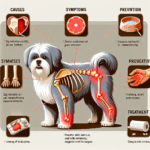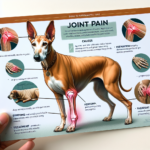Pointer Joint Pain: Causes, Symptoms, Prevention, and Treatment
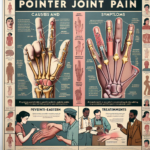
Introduction
Pointer dogs, often referred to simply as Pointers, are a breed known for their exceptional hunting abilities, particularly in pointing game birds. Originating in England, Pointers have a rich history dating back to the 17th century. They are characterized by their athletic build, keen sense of smell, and distinctive stance when they locate game. Pointers are not only valued for their hunting prowess but also for their friendly and loyal nature, making them excellent family pets.
Like many breeds, Pointers are susceptible to certain health issues, with joint pain being a significant concern. Joint health is crucial for Pointers due to their high activity levels and the physical demands of their typical roles. Ensuring the joint health of a Pointer can significantly enhance their quality of life and longevity.
Breed-Specific Joint Pain Risks
Genetic Predisposition
Pointers are genetically predisposed to several joint-related issues, including hip dysplasia, elbow dysplasia, and arthritis. Hip dysplasia is a condition where the hip joint does not fit into the hip socket properly, leading to pain and mobility issues. Elbow dysplasia involves abnormal development of the elbow joint, causing lameness and discomfort. Arthritis, a degenerative joint disease, can also affect Pointers, particularly as they age.
Age-Related Risks
As Pointers age, the risk of developing joint pain increases. Typically, signs of joint issues may start to appear in middle age, around 5-7 years old. However, some Pointers may show symptoms earlier, especially if they have a genetic predisposition. It’s essential for owners to monitor their dogs closely as they age and to be aware of any changes in mobility or behavior that could indicate joint pain.
Activity Level and Joint Stress
Pointers are known for their high energy levels and need for regular, vigorous exercise. While this activity is beneficial for their overall health, it can also contribute to joint stress, particularly if not managed properly. Activities such as running, jumping, and hunting can put significant strain on their joints, potentially leading to wear and tear over time.
Common Symptoms of Joint Pain in Pointers
General Symptoms
- Limping or favoring one leg
- Stiffness, especially after rest
- Reluctance to move, jump, or climb stairs
- Decreased activity or playfulness
- Visible discomfort or pain when touched
- Swelling around the joints
Breed-Specific Symptoms
In Pointers, joint pain may manifest more prominently due to their active nature. Owners might notice a decrease in their dog’s enthusiasm for activities they once enjoyed, such as hunting or playing fetch. Additionally, Pointers may exhibit a more pronounced limp or stiffness after periods of intense exercise.
When to Consult a Vet
If a Pointer shows any signs of joint pain, it’s crucial to consult a veterinarian promptly. Early intervention can help manage symptoms and prevent further deterioration. Owners should seek veterinary advice if their dog exhibits persistent limping, significant changes in activity levels, or any signs of pain or discomfort.
Preventive Measures for Joint Health
Exercise Recommendations
Regular exercise is essential for maintaining joint health in Pointers, but it should be balanced to avoid overexertion. Low-impact activities such as swimming or controlled leash walks can be beneficial. It’s also important to provide adequate warm-up and cool-down periods during exercise sessions to prevent joint strain.
Dietary Suggestions
A balanced diet rich in nutrients that support joint health is crucial for Pointers. Foods containing glucosamine, chondroitin, and omega-3 fatty acids can help maintain healthy joints. Owners may also consider supplements specifically designed for joint health, but it’s essential to consult a veterinarian before adding any supplements to the dog’s diet.
Weight Management
Maintaining a healthy weight is vital for reducing joint stress in Pointers. Excess weight can exacerbate joint issues and lead to additional health problems. Owners should monitor their dog’s weight and adjust their diet and exercise routine as needed to ensure they remain within a healthy weight range.
Early Screening and Monitoring
Regular veterinary check-ups and early screening for joint issues can help catch problems before they become severe. For Pointers, this may include routine X-rays or other diagnostic tests to monitor joint health. Early detection allows for timely intervention and better management of joint conditions.
Treatment Options for Joint Pain
Non-Surgical Treatments
Non-surgical treatments for joint pain in Pointers include medications such as nonsteroidal anti-inflammatory drugs (NSAIDs) to reduce pain and inflammation. Physical therapy can also be beneficial, helping to strengthen muscles and improve joint function. Lifestyle adjustments, such as modifying exercise routines and providing supportive bedding, can further alleviate symptoms.
Surgical Options
In severe cases, surgical intervention may be necessary. Common surgeries for joint issues in Pointers include hip replacement, arthroscopy, and joint fusion. These procedures can significantly improve mobility and quality of life but should be considered carefully in consultation with a veterinarian.
Alternative Therapies
Alternative therapies such as acupuncture, hydrotherapy, and massage can provide additional relief for Pointers with joint pain. These treatments can help reduce pain, improve mobility, and enhance overall well-being. Owners should discuss these options with their veterinarian to determine the best approach for their dog.
Lifestyle and Management Tips
Daily Care Routine
A daily care routine for a Pointer with joint pain might include gentle exercise, such as short walks or swimming, to maintain mobility without causing strain. Providing a comfortable, supportive bed and ensuring the dog has a warm, dry place to rest can also help manage joint pain.
Modifying the Home Environment
Making the home environment more comfortable for a Pointer with joint pain can involve adding ramps to help them navigate stairs, using non-slip mats to prevent falls, and providing orthopedic beds for better joint support. These modifications can significantly improve the dog’s comfort and quality of life.
Long-Term Management
Long-term management of joint pain in Pointers involves regular veterinary check-ups, ongoing monitoring of symptoms, and adjustments to exercise and diet as needed. Owners should remain vigilant for any changes in their dog’s condition and be proactive in seeking veterinary advice to ensure their dog remains active and happy.
FAQs About Pointers and Joint Pain
What are the early signs of joint pain in Pointers?
Early signs of joint pain in Pointers include limping, stiffness, reluctance to move, and decreased activity levels. Owners should watch for these symptoms and consult a veterinarian if they notice any changes in their dog’s behavior or mobility.
Can joint pain in Pointers be prevented?
While it may not be possible to prevent joint pain entirely, taking preventive measures such as maintaining a healthy weight, providing a balanced diet, and ensuring regular, low-impact exercise can help reduce the risk and severity of joint issues in Pointers.
Are there specific supplements that can help with joint health in Pointers?
Supplements containing glucosamine, chondroitin, and omega-3 fatty acids can support joint health in Pointers. However, it’s essential to consult a veterinarian before adding any supplements to ensure they are appropriate for the dog’s specific needs.
When should I consider surgery for my Pointer’s joint pain?
Surgery should be considered when non-surgical treatments are no longer effective, and the dog’s quality of life is significantly impacted by joint pain. A veterinarian can provide guidance on the best surgical options based on the dog’s condition and overall health.
Conclusion
Joint pain is a common concern for Pointers, but with proper care and management, owners can help their dogs maintain a high quality of life. By understanding the breed-specific risks, recognizing early symptoms, and taking preventive measures, owners can support their Pointer’s joint health effectively. Regular veterinary consultations and a proactive approach to joint care are essential for ensuring that Pointers remain active, happy, and healthy throughout their lives.

